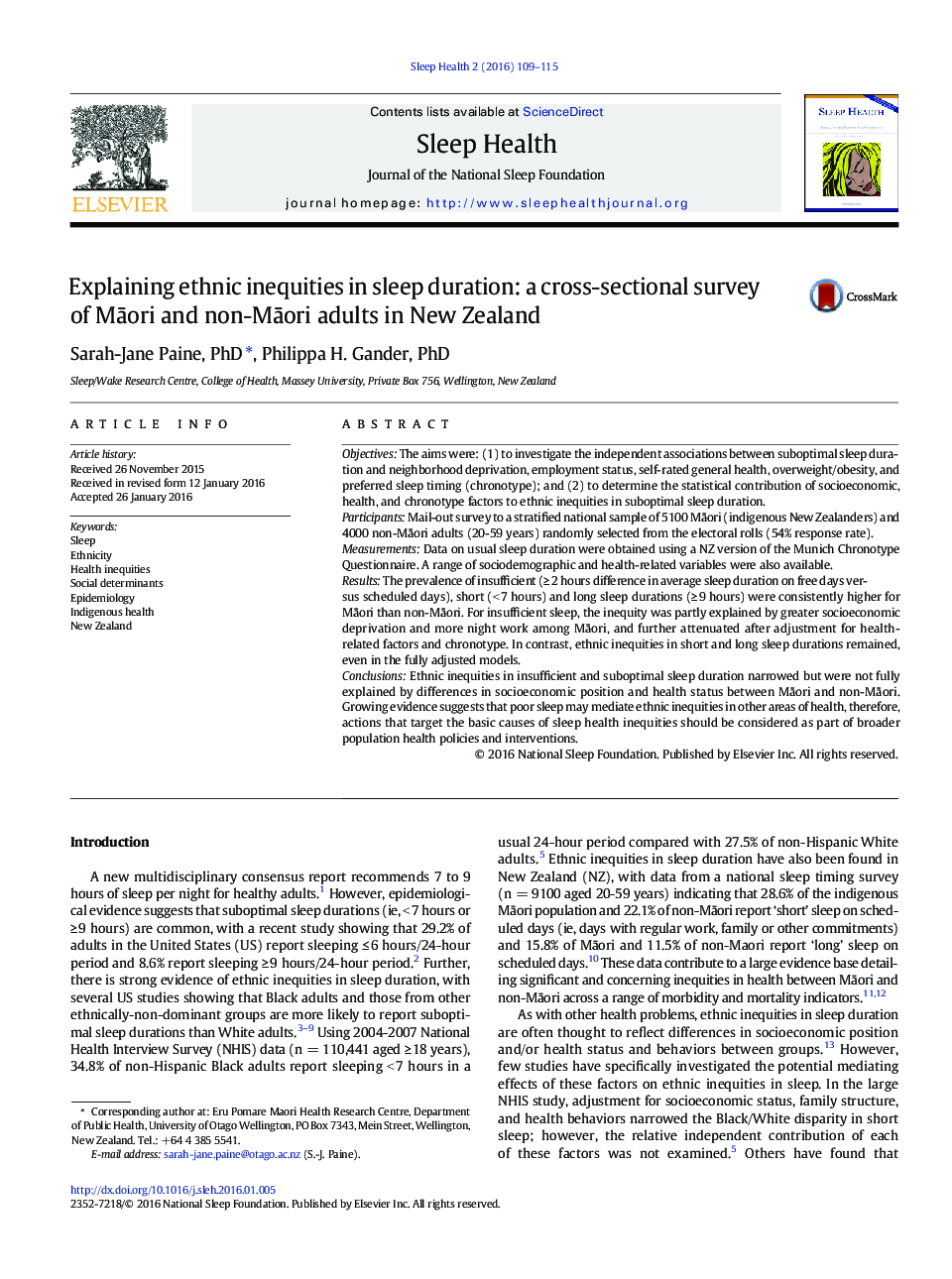| کد مقاله | کد نشریه | سال انتشار | مقاله انگلیسی | نسخه تمام متن |
|---|---|---|---|---|
| 916244 | 918832 | 2016 | 7 صفحه PDF | دانلود رایگان |
ObjectivesThe aims were: (1) to investigate the independent associations between suboptimal sleep duration and neighborhood deprivation, employment status, self-rated general health, overweight/obesity, and preferred sleep timing (chronotype); and (2) to determine the statistical contribution of socioeconomic, health, and chronotype factors to ethnic inequities in suboptimal sleep duration.ParticipantsMail-out survey to a stratified national sample of 5100 Māori (indigenous New Zealanders) and 4000 non-Māori adults (20-59 years) randomly selected from the electoral rolls (54% response rate).MeasurementsData on usual sleep duration were obtained using a NZ version of the Munich Chronotype Questionnaire. A range of sociodemographic and health-related variables were also available.ResultsThe prevalence of insufficient (≥ 2 hours difference in average sleep duration on free days versus scheduled days), short (< 7 hours) and long sleep durations (≥ 9 hours) were consistently higher for Māori than non-Māori. For insufficient sleep, the inequity was partly explained by greater socioeconomic deprivation and more night work among Māori, and further attenuated after adjustment for health-related factors and chronotype. In contrast, ethnic inequities in short and long sleep durations remained, even in the fully adjusted models.ConclusionsEthnic inequities in insufficient and suboptimal sleep duration narrowed but were not fully explained by differences in socioeconomic position and health status between Māori and non-Māori. Growing evidence suggests that poor sleep may mediate ethnic inequities in other areas of health, therefore, actions that target the basic causes of sleep health inequities should be considered as part of broader population health policies and interventions.
Journal: Sleep Health - Volume 2, Issue 2, June 2016, Pages 109–115
